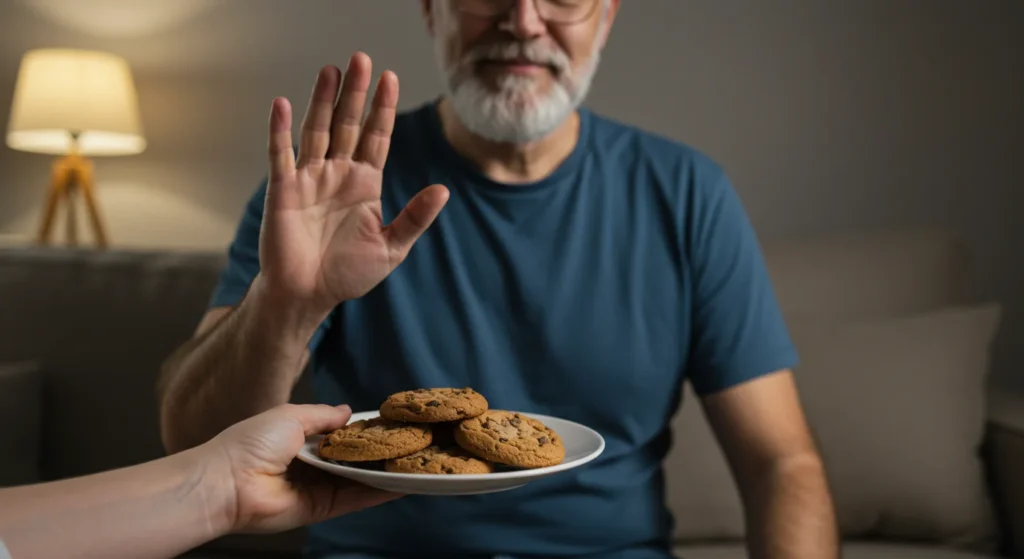If you’ve been trying to lose weight or manage your blood sugar, you’ve probably heard about medications like Ozempic and Wegovy. They’re all over the news, on TikTok, and maybe even in your group chats. People are talking about them as if they’re miracle drugs. But what do they actually do? Are they really as effective as they sound? And maybe more importantly—should you consider them?
I remember asking my doctor about these meds during a check-up, and she told me I didn’t qualify for them because I wasn’t diabetic. That caught me off guard. I had heard so many stories about people losing 20, 30, even 50 pounds on these meds. So, if you’re wondering whether these medications could be part of your health journey—or just want to understand what all the hype is about—you’re in the right place.
In this post, we’ll break it all down: how these medications work, who they’re for, and whether they’re something to consider if you’re trying to lose weight and live healthier. No buzzwords, no confusing science terms—just clear info, backed by research, and explained like we’re having coffee.

What Are Ozempic and Wegovy?
They’re Actually the Same Medication (Sort Of)
Let’s start with a surprise: Ozempic and Wegovy are both brand names for the same active ingredient—semaglutide. They’re made by the same company, Novo Nordisk, and they work in the same way inside your body. The difference? Ozempic is FDA-approved to treat type 2 diabetes, while Wegovy is approved specifically for weight loss in people who are overweight or obese.
The difference in approval matters, because insurance coverage usually depends on your diagnosis. So if you’re not diabetic (like me), your doctor might not prescribe Ozempic—even if it would help with weight loss.

How Do Ozempic and Wegovy Work?
Think of It Like Hormonal Messaging
These medications belong to a class called GLP-1 receptor agonists. That sounds complicated, but here’s the simple version:
When you eat, your gut releases a hormone called GLP-1. It helps:
- Tell your brain that you’re full
- Slow down how quickly your stomach empties
- Help your pancreas release insulin (which controls blood sugar)
Semaglutide mimics this hormone. That means your body feels like it’s getting a stronger version of that “I’m full” signal. As a result:
✅ You feel less hungry✅ You eat less✅ Your blood sugar stays more stable
According to the FDA’s approval summary for Wegovy, people using it lost, on average, 15% of their body weight over 68 weeks when combined with lifestyle changes.
Wegovy vs. Ozempic: Quick Comparison Table
| Feature | Ozempic | Wegovy |
| FDA Approval | Type 2 Diabetes | Chronic Weight Management |
| Active Ingredient | Semaglutide | Semaglutide |
| Weekly Dose | 0.25mg to 2mg | 0.25mg to 2.4mg |
| Typical Use | Blood sugar control, weight loss (off-label) | Weight loss |
| Insurance Coverage | Often covered with diabetes diagnosis | More limited, may require BMI ≥30 (or ≥27 with health issues) |
Who Can Get Prescribed These Medications?
This is where it gets tricky—and where my experience comes in.
When I asked my doctor about Ozempic, she told me that because I wasn’t diabetic, I didn’t meet the criteria for a prescription. And even though I technically had a BMI in the overweight range, it wasn’t high enough to qualify for Wegovy under insurance guidelines.
Wegovy is typically prescribed if:
- You have a BMI of 30 or higher, or
- You have a BMI of 27 or higher with a weight-related health issue (like high blood pressure, high cholesterol, or sleep apnea)
If you’re healthy, just trying to lose the “last 20 pounds,” your doctor might tell you it’s not appropriate—or insurance might not cover it. That’s led a lot of people to seek off-label use or pay out-of-pocket, which can cost $1,000 or more per month without coverage.

Why Are These Medications So Popular for Weight Loss?
Let’s be real: a lot of people struggle with weight loss. For many, lifestyle changes alone just don’t cut it long term. These meds seem to offer a tool that actually helps people feel full, making it easier to stick to healthier eating habits without feeling deprived.
In clinical trials like the STEP 1 study, people taking Wegovy:
- Lost an average of 14.9% of their body weight
- Compared to just 2.4% in the placebo group
That’s a massive difference—and why so many are calling it a “breakthrough” in obesity treatment. But again, that doesn’t mean it’s the right choice for everyone.
Side Effects You Should Know About
Semaglutide isn’t without its downsides. Here are some of the most common side effects:
- Nausea
- Vomiting
- Diarrhea or constipation
- Fatigue
- Loss of appetite
Most side effects tend to show up when you first start or increase your dose, and some people stop the medication because of how bad they feel.
There are also serious risks, though they’re rare:
- Pancreatitis
- Gallbladder issues
- Kidney problems
- Thyroid tumors (in animal studies—still being studied in humans)
Always talk to your doctor about risks, especially if you have a personal or family history of these conditions. Mayo Clinic has a helpful list of things to watch out for.
Should You Take Ozempic or Wegovy for Weight Loss?
Here’s where it really depends on your situation.
You might be a good candidate if:
- You’ve tried lifestyle changes and haven’t had success
- Your BMI is 27+ and you have other health risks
- You’re okay with weekly injections
- You understand the costs and side effects
You may want to consider other options if:
- Your weight is stable and you’re generally healthy
- You’re looking for a short-term fix (these drugs need long-term use to maintain results)
- You’re uncomfortable with the idea of medication for weight loss
There’s no one-size-fits-all answer here. And even though it was frustrating to hear that I didn’t qualify, I get it—these medications are strong, and they’re meant for people who really need medical help managing weight or blood sugar.

Can You Lose Weight Without These Medications?
Yes, absolutely. But it may require a different kind of strategy.
If you’re someone like me—not diabetic, not in the “obese” category, but still trying to feel better in your body—here are a few things that actually help (without injections):
Focus on Protein and Fiber
They help you feel full longer and keep blood sugar steady. Think Greek yogurt, lentils, eggs, and lots of veggies.
Eat More Whole Foods
It sounds obvious, but cutting back on processed foods makes a big difference—especially when it comes to cravings.
Strength Training
Muscle burns more calories at rest, helps regulate blood sugar, and improves how your body uses insulin—even if you’re not diabetic.
Get Enough Sleep
Lack of sleep messes with your hunger hormones. Aim for 7-8 hours most nights.
And honestly? If weight loss has felt like a fight, it’s okay to talk to your doctor about medication. You deserve support—whatever form that takes.

Final Thoughts: The Bigger Picture
Ozempic and Wegovy are changing how people think about weight loss. They’re powerful tools for people who meet the criteria, especially those who’ve struggled for years without results. But they’re not magic—and they’re not for everyone.
If your doctor says you don’t qualify, it doesn’t mean your struggles aren’t valid. I felt a little dismissed when I was told “you’re not diabetic,” like my health goals didn’t matter. But I’ve come to realize that there are many ways to take care of your body—and medication is just one of them.
Before jumping on the semaglutide train, ask yourself:
- What are my goals?
- Have I exhausted other options?
- Do I understand the risks and costs?
- Am I willing to take this long-term?
If the answer is yes, great—bring it up at your next appointment. If not, you’re still doing great just by learning more about your options.








